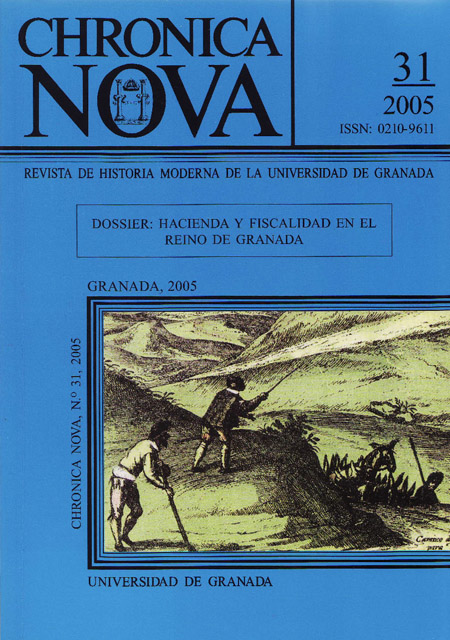Council Charters and Feudal Regime in the Kingdom of Leon. Charter Document, Conflicts and Territorialisation of a Feudal Rent, XV-XIXth centuries
DOI:
https://doi.org/10.30827/cn.v0i31.1814Keywords:
Lordship, charters, general council, tenancy rights, council, feudal over-lordship, jurisdiction, lordship, feudal dues, feudalismAbstract
The development and implementation of the feudal regime in the territory of the kingdom of Leon during the Middle Age was conditioned by several factors, based on the process of repopulation and the charters granted by the kings, which shaped and adapted this process to the existing established structures. In that context, the new power of feudal lords had to adapt to a territory which was completely delimited and distributed and to rural communities that were fully identified with the council (concejo) system and enjoyed full legal capacity for their own administration and management of their economic resources. However, feudal aristocracy tried to modify the situation and impose the full weight of their jurisdictional power, specially increasing their rule on land and other production means.
In the context of the struggle between village councils (concejos) and jurisdictional lords, is where we find the "fueros concejiles leoneses "( charters of council from Leon) that is to say, the feudal rent that several councils had to pay jointly to a lord as an acknowledgement of his rule as lord, as well as of his alleged rule on land and territory. This rent, that taxed men as vassals, was exercised on a territory or land that did not belong to the lord, therefore, it was considered a censo de frutos (payment in kind) and later as a "foro enfitéutico" (tenancy rights) by which a given community had to pay the lord one fourth or one fifth of the annual cereal harvest of their land. However, the contradiction and nature of this feudal burden was constantly contested in court by the councils, even though in most cases judges found for the lords.
Downloads
Downloads
Published
How to Cite
Issue
Section
License
Nuestra revista se atiene a las recomendaciones para la implementación del Artículo 37 Difusión en Acceso Abierto de la Ley de la Ciencia, la Tecnología y la Innovación:
- Los/as autores/as cuyas contribuciones sean aceptadas para su publicación en esta revista conservarán el derecho no exclusivo de utilizar sus contribuciones con fines académicos, de investigación y educativos, incluyendo el auto-archivo o depósito de los artículos aceptados en repositorios institucionales o temáticos de acceso abierto de cualquier tipo en un plazo máximo de seis meses.
- Preferiblemente se permitirá el uso de la versión publicada de las contribuciones científicas, que estarán accesibles en abierto tan pronto como sea posible.
-
Que en caso de que el trabajo sea aprobado para su publicación, el/la autor/a autoriza de manera ilimitada en el tiempo a la entidad editora para que incluya dicho texto en Chronica Nova y pueda reproducirlo, editarlo, distribuirlo, exhibirlo y comunicarlo en el país y en el extranjero por medios impresos, electrónicos, CD, Internet o cualquier otro medio conocido o por conocer.






 ISSN-e: 2445-1908
ISSN-e: 2445-1908










